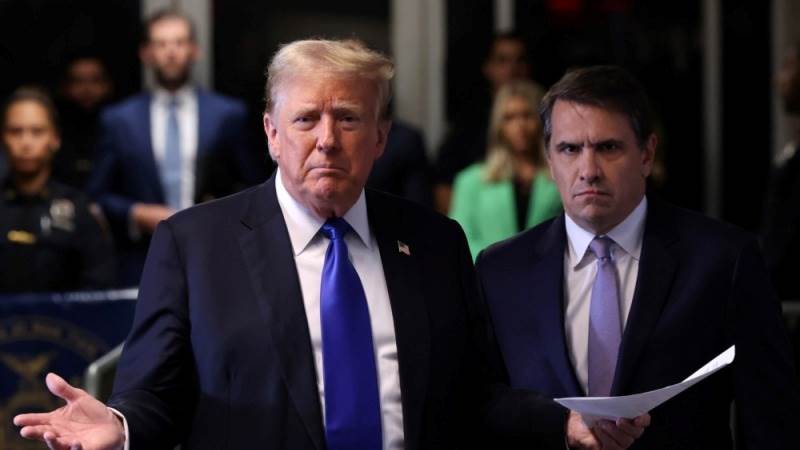Chinese Hackers Target Trump Attorney’s Phone, FBI Confirms
3 min read
EPA-EFE/MICHAEL M. SANTIAGO
The FBI has notified one of President-elect Donald Trump’s lead attorneys that his cellphone was compromised by Chinese hackers as part of a broader operation aimed at prominent political figures. Sources familiar with the matter told CNN that Todd Blanche, a key member of Trump’s legal team, was informed last week that hackers had gained access to some of his voice recordings and text messages, though none of the information involved Trump directly. The breach, which occurred months ago, is part of a sustained cyber espionage campaign targeting both Republicans and Democrats in U.S. politics.
According to one source, the FBI provided Blanche with details of what the hackers accessed, including private communications with his family. As a result of the breach, Blanche has since switched to using a new phone number. CNN reached out to the FBI for official comment, but no response was immediately available. ABC News was the first to report the targeting of Blanche’s phone.
Blanche is the second Trump attorney to be targeted by foreign hackers. Earlier this year, CNN reported that another of Trump’s lawyers, Lindsey Halligan, was also a victim of a separate hacking campaign believed to be linked to Iran. However, the details surrounding the timing and scope of the breach of Halligan’s devices remain unclear.
In addition to Blanche, the Chinese hackers have reportedly targeted other individuals close to Trump, including the former president himself, Vice President-elect JD Vance, and other members of the Trump family such as Jared Kushner and Eric Trump. The campaign also extended to individuals involved in the Harris-Walz campaign and the Biden administration, according to earlier CNN reports.
The sophisticated nature of the hack has raised alarm among national security officials. The breach, which involved hacking into U.S. telecom giants AT&T, Lumen, and Verizon, is considered one of the most significant national security threats in recent memory due to the depth of access the Chinese hackers have gained to sensitive phone records and communications. U.S. officials investigating the breach have noted that the full extent of the operation is likely much worse than what is currently known.
Sources familiar with the investigation have suggested that officials are still working to understand the full impact of the hacking campaign. One source mentioned that the scope of the intrusion is “way worse than the public knows” and that the investigation is ongoing to determine just how far-reaching the breach may have been.
In response to the widespread hacking campaign, U.S. government employees have been instructed to adopt unusual security measures to safeguard sensitive communications. For example, the Consumer Financial Protection Bureau (CFPB) has told its staff to conduct work-related business involving non-public information exclusively through Microsoft Teams or Cisco WebEx. While there is no evidence that the CFPB itself was specifically targeted, the new security protocols have been implemented as a precautionary measure. The Wall Street Journal was the first to report on the CFPB’s new security guidelines.
While the Chinese government has denied any involvement in the hacking campaign, U.S. officials continue to point to Beijing as the likely source of the cyberattacks. The sophistication of the operation and the high-profile nature of the targets have raised concerns about the potential national security risks posed by foreign actors having access to personal and professional communications at the highest levels of U.S. politics.
This ongoing hacking campaign underscores the vulnerability of critical U.S. infrastructure and political figures to foreign cyberattacks. It highlights the growing threat of espionage in the digital age, where foreign governments can exploit vulnerabilities in telecom networks to access a wealth of sensitive information. As the investigation unfolds, U.S. officials are bracing for potential revelations about the full scale of the breach and its impact on national security.
The ongoing concern is not just about the immediate damage caused by the hacks, but the long-term implications for privacy, trust in government, and the integrity of communications between high-ranking officials in the U.S.








